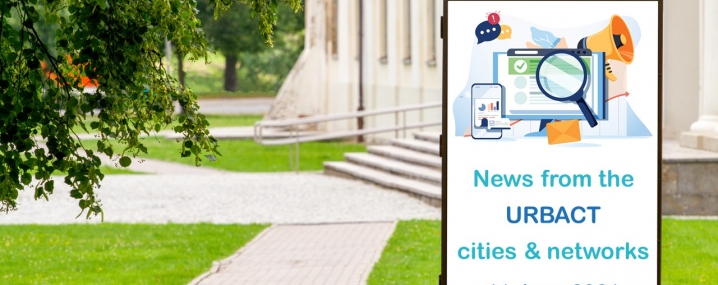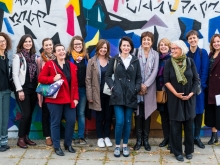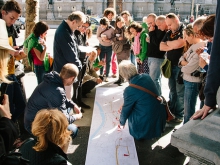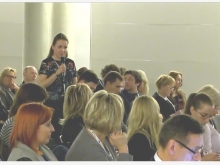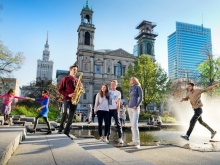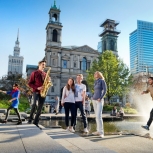
Warsaw
The Polish capital is not only the major political, administrative, cultural and economic centre at a national level, its importance also lies in the wider context of Poland’s increasing influence in European affairs. Most of the country’s governmental bodies, national and regional institutions, diplomatic missions, media and financial institutions are all based here.
The city, which is home to 1.7 million people, also provides a headquarters for national and multinational companies. A well-developed services sector includes a significant activity in business process outsourcing. Warsaw has the highest concentration of research facilities in Poland and the highest number of people with university degrees.
Since rediscovering its independence and subsequently joining the European Union, Warsaw has become a city of constant change—attracting people and investment from Poland and abroad. Recent infrastructure improvements, such as a second metro line, new tram routes and bridges, and the renovation of the road system, have all underpinned the city’s rapid economic growth in recent years. Unemployment in Warsaw currently stands at just 4.5%.
An important feature of Warsaw was the destruction of 80% of the city during World War II. Consequently, it has a limited built heritage in comparison with other European capitals. The result has been a branding exercise for tourism purposes where heritage focuses on its famous people. Warsaw is the city of Chopin, and is also the birthplace of Nobel Prize winner Marie Curie, whose family home still exists in Warsaw. Some 8.3 million tourists visited the city in 2011—2.8 million of them from outside the country.
SOME RELATED NETWORKS
RUMOURLESS CITIES
Come in!
Article
2019 URBACT Highlights
Article
Rumours or reality?
Article
Sign of the times: new URBACT projects reflect people power patterns
News
URBACT III InfoDay Poland took place in February in Warsaw
News

